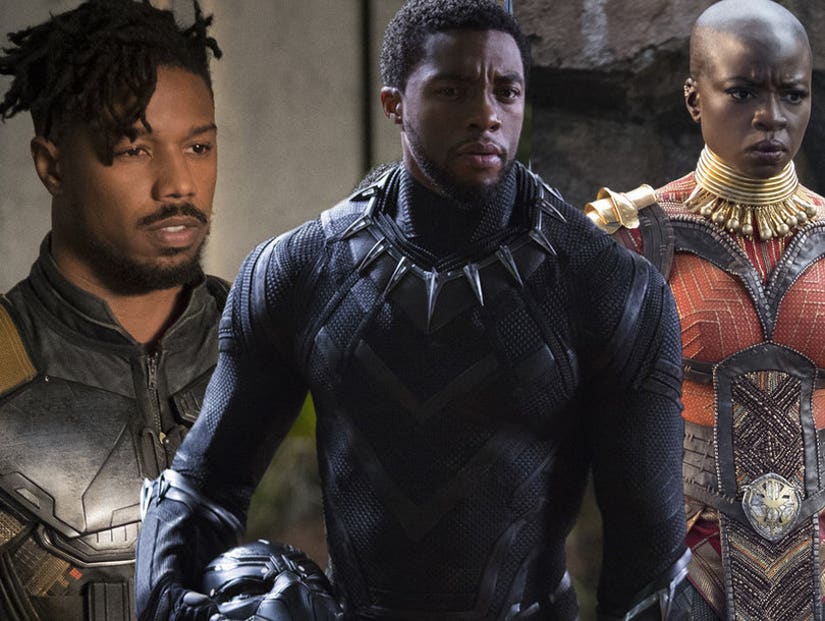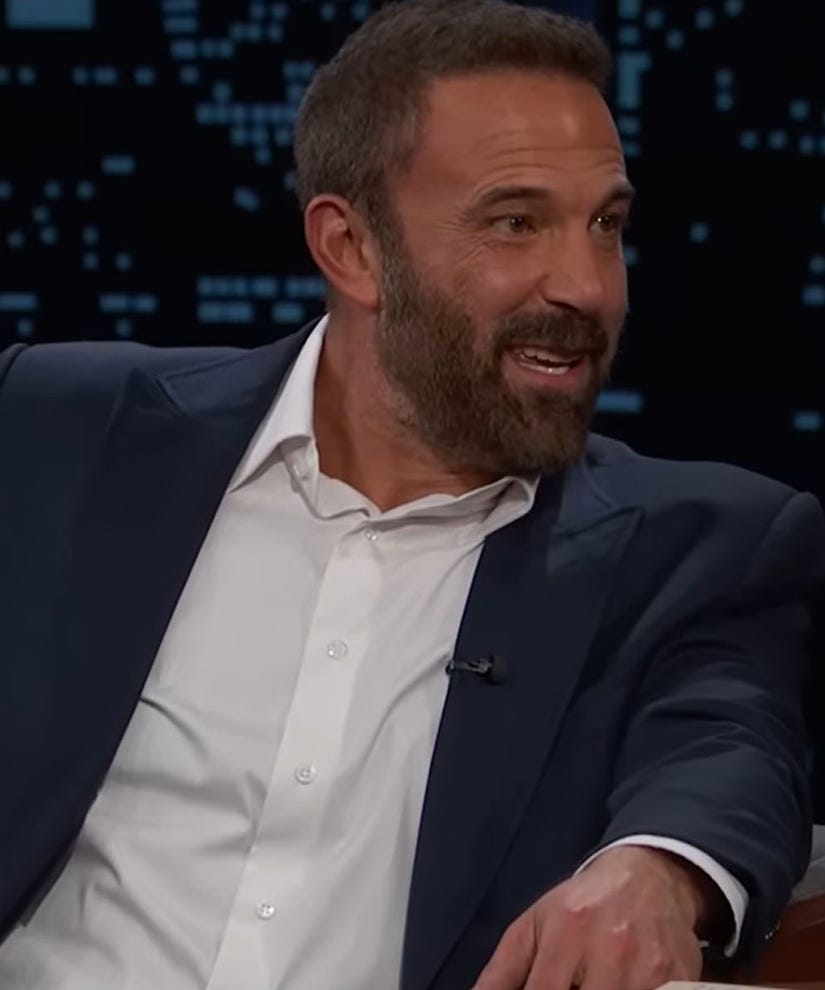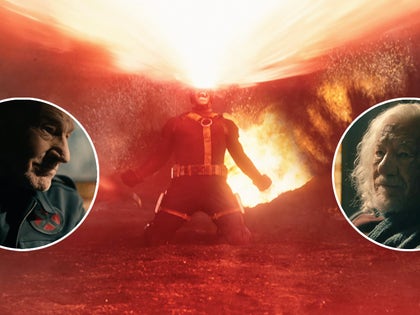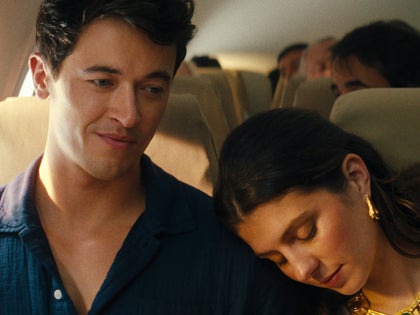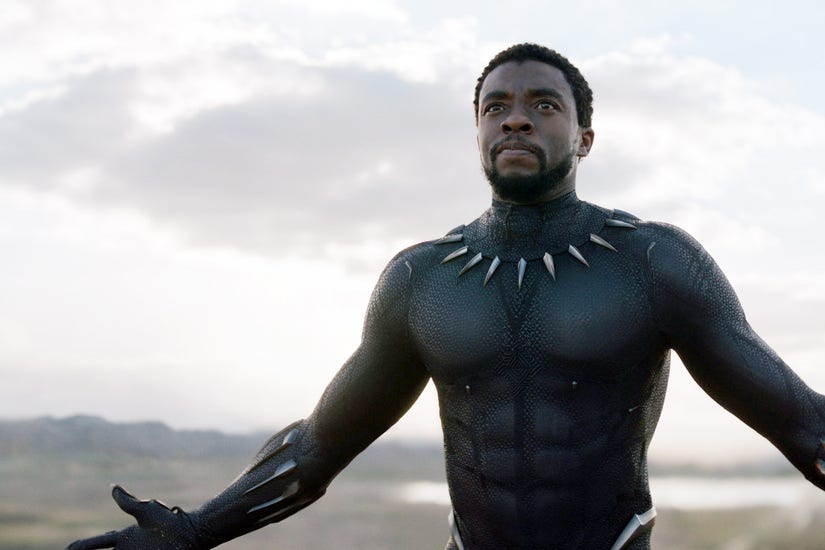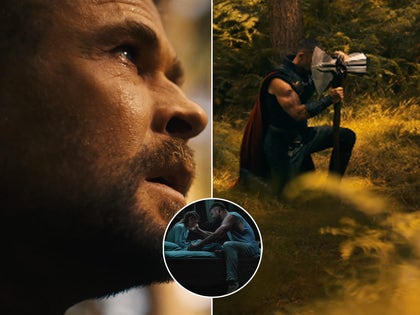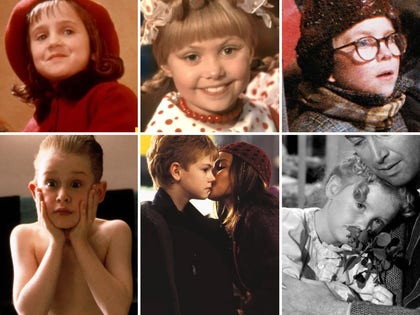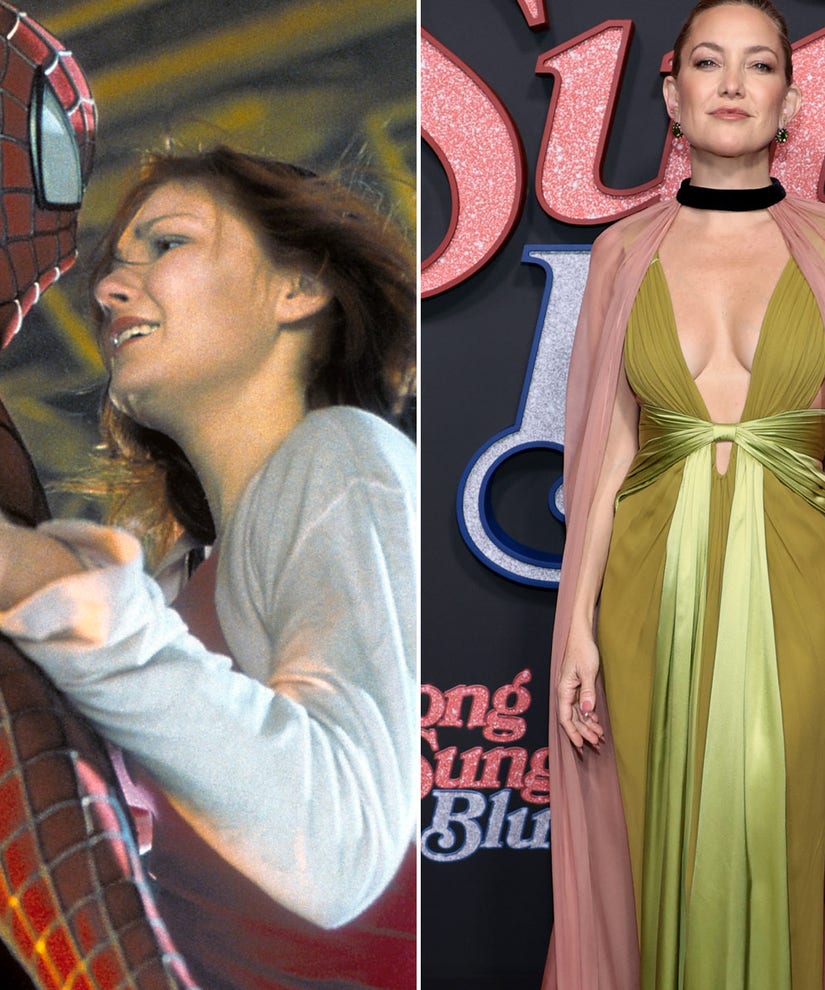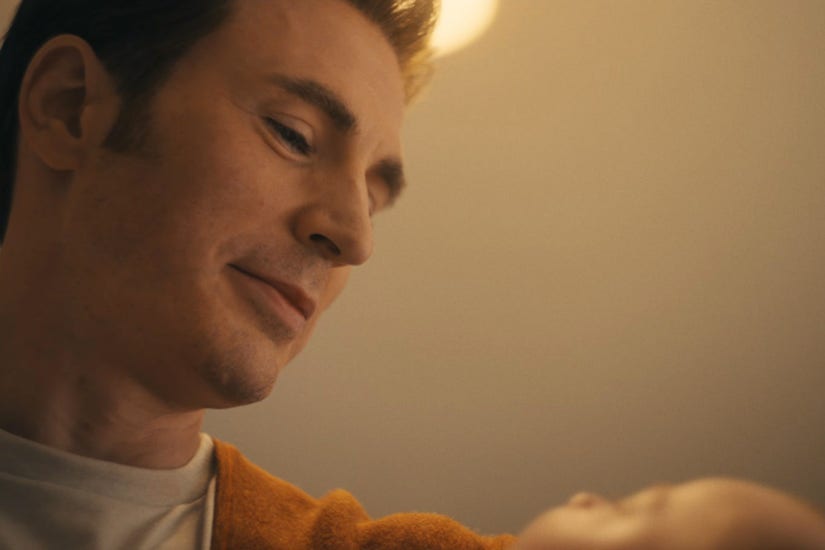The massive cast of Marvel's "Black Panther" met with press on Tuesday, following the big Hollywood premiere of the new film.
Fresh off the glowing first reactions from critics and fans who watched it last night, stars like Chadwick Boseman, Michael B. Jordan, Lupita Nyong'o, Danai Gurira, Angela Bassett, director Ryan Coogler and Marvel head honcho Kevin Feige excitably fielded questions about making the movie and what they hope it means to audiences when it hits theaters February 16.
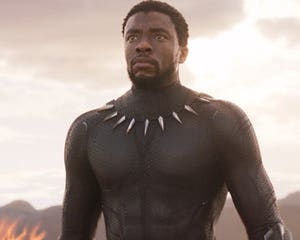 Marvel
Marvel
First 'Black Panther' Reviews Are Here: Is It One of Marvel's Best Yet?
View StoryHere's everything what we learned:
Their Reaction to Seeing the Film
Lupita Nyong'o kicked it off, saying she had been waiting "a long time" to see the movie on the big screen. "I was so so excited because this was a movie we all felt a lot of ownership of, that we thoroughly enjoyed making," she said. "To see it alive, three dimensional was what I was looking forward to."
"I felt incredibly blessed to have the opportunity to make the film this way, with this studio," added director Ryan Coogler. "I had 50 family members there from the Bay Area there [at the premiere], talking at the screen. I felt really fortunate, more than anything, for the opportunity."
"Last night was the first time I saw the film," said Michael B. Jordan. "I called Ryan the day of and said, 'I'm anxious, I'm nervous.' He said, 'Look at it, try to be a fan, watch it and try to enjoy the movie.' Back of my head, I was like, yeah that's never gonna happen. I sat down with my family, this family, the audience, I couldn't describe that feeling before sitting down and watching that film and seeing yourself on screen -- people that look like you, empowered, having socially relevant themes -- it was a really good balance and everyone did amazing, amazing job."
Chadwick IS Black Panther
"He was the only choice," Feige said of Chadwick Boseman's casting. "In my memory, we were sitting around a table coming up with the story of 'Civil War.' Almost instantly we all said Chadwick and we got him on speaker phone right then. He was in the back of a limo."
"I was coming off the red carpet for 'Get On Up' and my agent was like, you gotta get on the phone," he said, explaining he was overseas when he got the call. "I didn't even have international calling!"
Boseman added the initial phone call was Feige saying, "We want to bring your character into the MCU as a standalone, but this is the best way to introduce him in 'Civil War.'"
The rest is history.
Bad Ass Women of Wakanada
"I'm so pleased that this story, that it supported that," said Angela Bassett. "In African culture, they feel as if there is no king without a queen and this story highlights the queen, the warrior, the general, the young sister. I was so proud to have my daughter and my son there last night, they were feeling themselves. they stood taller after last night."
Danai Gurira also opened up about going bald for the role as one of the warriors in the film and how she saw it as "subversive in the right way."
"I was the first one to get my head shaved. In theory, it sounded amazing, and then the day came," she said with a laugh. "It happened. Then you walk into the restroom to watch your hands, look up like, 'What the!?' It took a few days. The pride started to grow, there's pride around it, embracing this symbol of power. The beauty of how he[Ryan Coogler] wrote that moment, where she doesn't want to wear a wig. This is her joy, her pride, walking with that bald head with the tattoo on it. It's so subversive in the right way. You don't have to have hair to be beautiful."
Lupita said she loved how the movie showed how women don't have to be pitted against each other on film. "Often times, we as women fall into traps, there's a competitive spirit," she said. "[But in 'Black Panther] we see women going about our business, supporting each other, having other points of view but still not being against each other. The fact that there's so many of us, we really get a sense of the fabric of Wakanda as a nation. We see women alongside men and we see how much more effective a society can be if they allow women to explore their full potential."
Tackling Societal Issues
Kevin Feige admitted things have happened in the world recently that make the movie seem more relevant -- there's a line about building bridges to other nations that seems particularly relevant in the Trump era -- but admitted most of the script was written a year and a half ago.
Boseman added that some parallels to current day are "coincidence."
Being a White Guy on Set
Both Andy Serkis and Martin Freeman talked about being the two white guys on a set of primarily black actors.
"You reminded me of a story of Ryan saying to us before a scene, he came up to us and said, 'I've never directed two white actors before,'" revealed Serkis. "We're both like, yeah, probably not. It was kind of hilarious, but at the same time, like f-ck that's tragic. It was kind of insane. But it was an incredibly experience working with Ryan, he's one of the most brilliant, warm, humble, visionary directors. Just to be part of this."
"I hated it," Martin deadpanned.
"To be able to be part of something that is so groundbreaking and should have been made years ago, but now is the time and things are changing rapidly in filmmaking," added Serkis. "The needle should swing the other way people we need to change things."
The Story Behind T'Challa's African Accent
"I think as actors, this is separate from the movie but when you're trained, you're trained from a European perspective," explained Boseman. "What is considered great and classical is very often British and certain writers. I happen to come from a background that does not believe that. I went to Oxford to study, but I went to Howard. We were taught to respect our writers and our classics just as much and believe it takes the same skill level and same technique."
He said he used to field questions about whether people would sit through a movie with African languages. and subtitles
"The intonations and melodies inside of an African accent are just as classical as a British one, a Eurpoean one, all the emotions can be shown through that accent and we have to take that opportunity to show that," he added. "If [Wakanda] had never been conquered, he doesn't have to go to Oxford to study, he doesn't have to go to Cambridge or Yale, he got his education at home. He would not then assimilate a language that is the colonizer's language to speak with the people."

